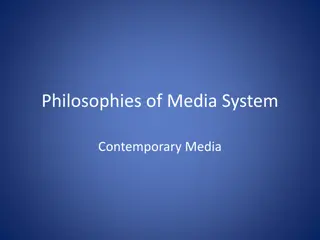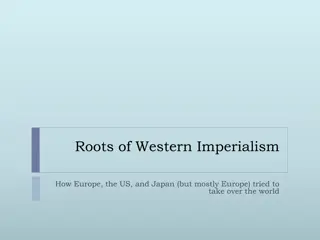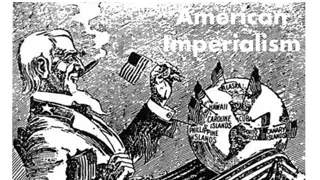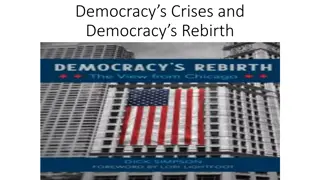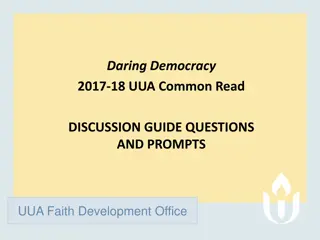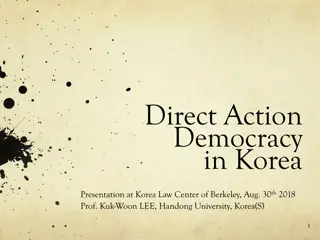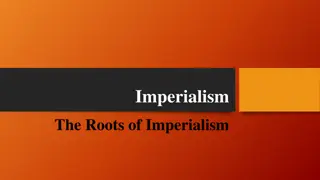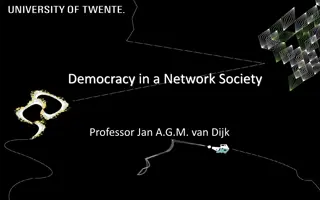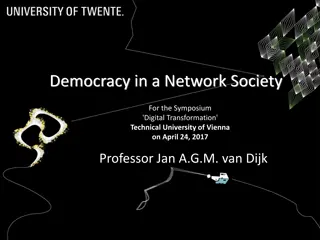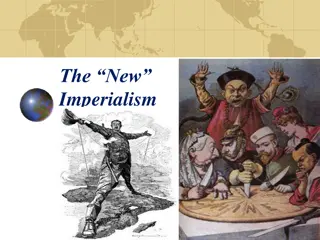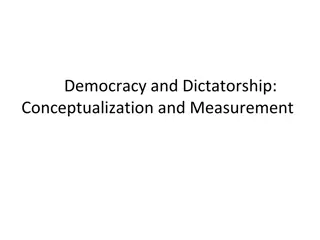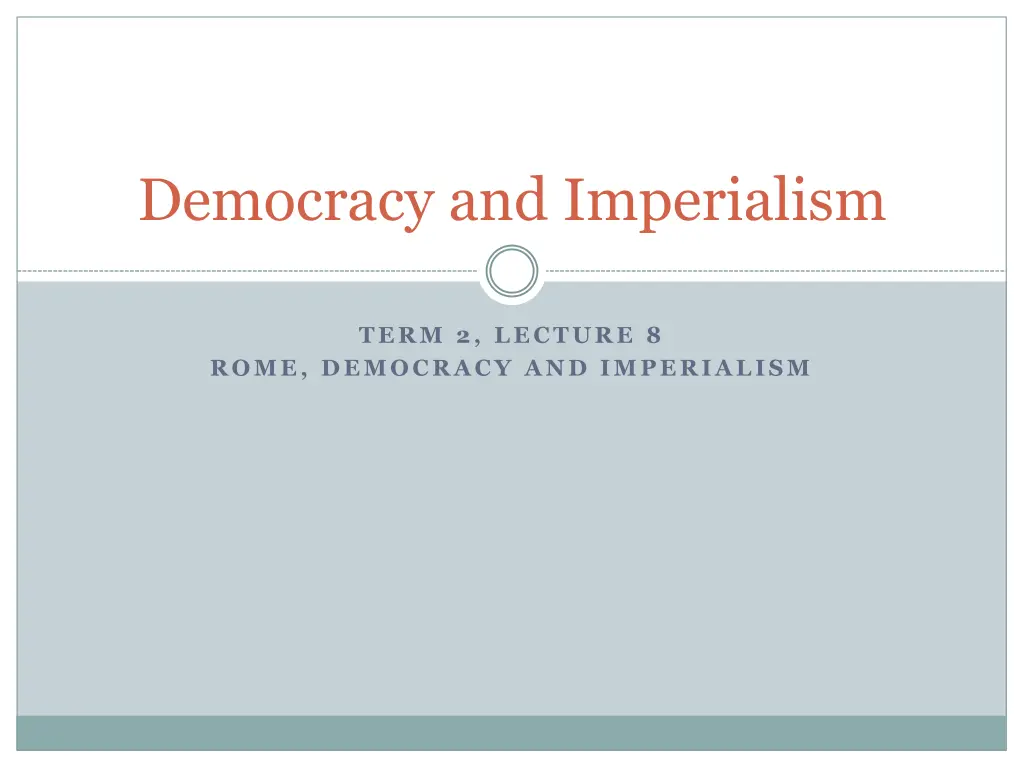
Rome, Democracy, and Imperialism in Ancient World
Explore the impact of Rome on democracy, Roman attitudes towards Athenian history, and the development of democracy in the Hellenistic world. Delve into key questions about Rome's role as a successor to Athens and the rise and fall of democratic practices in ancient civilizations.
Download Presentation

Please find below an Image/Link to download the presentation.
The content on the website is provided AS IS for your information and personal use only. It may not be sold, licensed, or shared on other websites without obtaining consent from the author. If you encounter any issues during the download, it is possible that the publisher has removed the file from their server.
You are allowed to download the files provided on this website for personal or commercial use, subject to the condition that they are used lawfully. All files are the property of their respective owners.
The content on the website is provided AS IS for your information and personal use only. It may not be sold, licensed, or shared on other websites without obtaining consent from the author.
E N D
Presentation Transcript
Democracy and Imperialism TERM 2, LECTURE 8 ROME, DEMOCRACY AND IMPERIALISM
The early reception of democracy: topics Democracy in the Hellenistic world Rome and its political system Rome s effect on democracy Roman attitudes to the Greeks Views on Athenian democracy in the Roman period
Key questions What did the rise of Rome mean for democracy? How did the Romans view Athenian history? Can Rome be regarded as a successor to Athens in the development of democracy?
Recap: the end (and return) of democracy 322: Athens defeated; democracy abolished 318/7: democracy restored 317: democracy abolished; Demetrius of Phaleron 307: Demetrius ousted; democracy restored c.300: Lachares seizes tyranny c.287/6: democracy restored 262: Athens defeated; democracy abolished 229: democracy restored 229-88: Athens preserves neutrality & democracy
The heyday of democracy? New Greek cities model institutions after Athens Evidence of other forms of government disappears When all cities are democracies, are any of them democracies?
Democracy or democracy? The demos has come back and taken back its laws and the democracy. IG II2 448 (Athens, 318/7) Demokratia (though varied in meaning) still used to distinguish people power from other forms of government Democracies defined by equal citizen rights & sovereign assemblies Epigraphy shows functioning assemblies, councils, jury courts
The end of democracy (for real this time) After mid-2nd century, democratic habits & institutions fade throughout Greek world 1st century: Greek states controlled by small councils of wealthy citizens Late Hellenistic/Roman period: politics of benefaction & honours
The Roman system: similarities to Athens Constitution described by a Greek (Polybius 6) Rome grows as city-state in city-state system Notions of citizenship, voting rights, resistance to tyranny develop early People divided into tribes & property classes Military importance gives the poor political leverage
Differences Roman assemblies traditionally rigged to favour elite Leisure class retains dominant position as Senate and through magistracies Romans allow outside groups to integrate into citizen body Conflicts between rich & poor resolved through conquest & gradual elite concessions
Republican Rome is what it says on the tin Power of elites + alternative escape valves preclude/prevent/ obviate need to develop democracy Roman system geared towards minimising power of the masses Concessions to the plebs are really concessions to wealthy sub-elite
An Imperial destiny Let others better mold the running mass Of metals, and inform the breathing brass, And soften into flesh a marble face; Plead better at the bar; describe the skies, And when the stars descend, and when they rise. But, Rome, 't is thine alone, with awful sway, To rule mankind, and make the world obey, Disposing peace and war by thy own majestic way; To tame the proud, the fetter'd slave to free: These are imperial arts, and worthy thee. Vergil, Aeneid 6.847-853
How Rome killed democracy Roman imperialism: replacement of hostile regimes with favourable oligarchies (Achaea, Sparta) Rome favours elite representatives in diplomatic dealings The masses: tuned out, locked out, or nudged out?
The end of politics There has been established throughout the world alike a democracy under one man, namely the best ruler and moderator. Aelius Aristides, To Rome 60 Nowadays, then, when the affairs of the cities no longer include leadership in wars, nor the overthrowing of tyrannies, nor acts of alliances, what opening for a conspicuous and brilliant public career could a young man find? There remain the public lawsuits and embassies to the emperor, which demand a man of ardent temperament and one who possesses both courage and intellect. But there are many excellent lines of endeavour that are neglected in our cities which a man may take up Plutarch, Moralia 805a-b
Rome and the Greeks Interaction goes back to Archaic period Greek cultural influence pervasive Greeks militarily powerless in Hellenistic world Development of contradictory stereotypes
Licentious, corrupt, untrustworthy Greeks [to the audience] And don't you be surprised that men, who are slaves, drink, court, and give invitations to dinner. This is allowed us at Athens. Plautus, Stichus 446-448 The better knowledge they had of Greeks, the more worthless were their respective characters. Cicero, De Oratore 2.265 [Greeks] to whom an oath is a joke, evidence a plaything, your opinion of them a shadow, men who place all their credit and profit and reputation, and triumph telling the most impudent lies. Cicero, For Flaccus 12
Athens as centre of learning To say nothing of Greece, which has ever claimed the leading part in eloquence, and of Athens, that discoverer of all learning, where the supreme power of oratory was both invented and perfected, in this city of our own assuredly no studies have ever had a more vigorous life than those having to do with the art of speaking. Cicero, De Oratore 1.13 The distinction of the Attic orators in their style is well known, but their essential characteristics are unknown. Many see one side that there was nothing in them with which to find fault but few see the other side that there was much to praise. Cicero, De Optimo Genere Oratorum 7
Sources What sort of text is your source? Which aspect of Athenian democracy is discussed? What is the judgment, and why is it negative? Can we see a historical grounding for the passage?
Rome and Athenian democracy Democracy persists until rise of Rome chokes it Roman-era thinkers recognise past Athenian glory, but regard democracy as flawed & doomed to fail Roman institutions developed independently; never aimed for or became democratic


